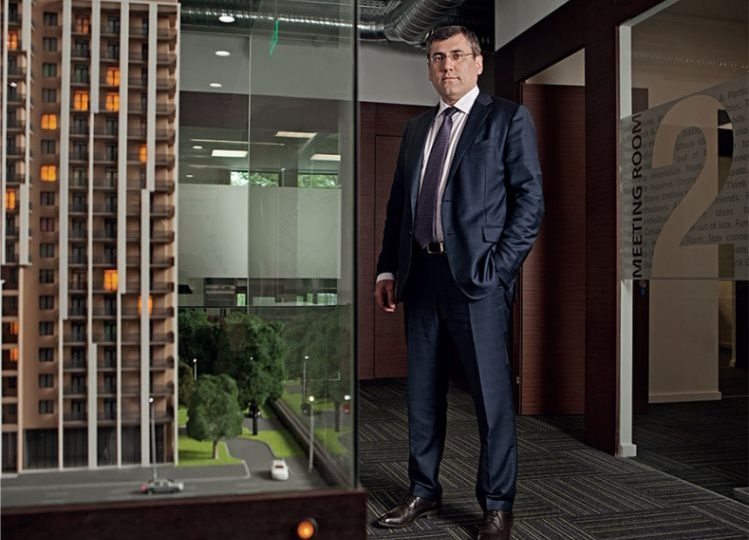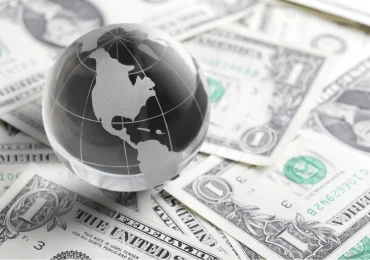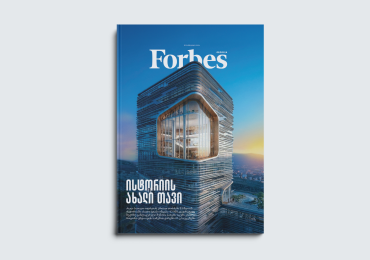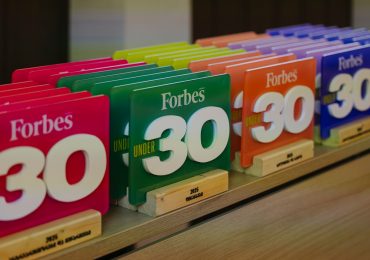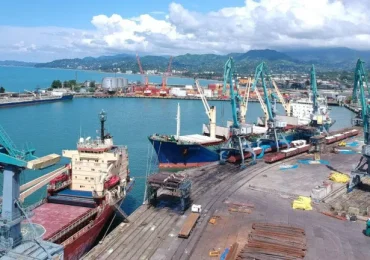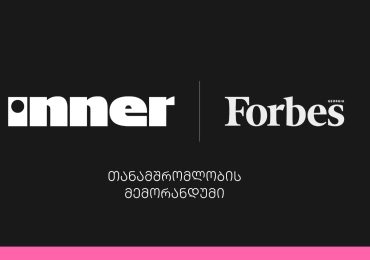m2 Real Estate is a fast-growing real estate developer in Georgia. Being a wholly-owned subsidiary of BGEO Group PLC,an LSE premium listed company, m2 Real Estate began operating as an energy-efficient residential property developer in 2006. Over time, it has gradually turned its focus towards mixed-use developments.
Since 2011, the company has completed the sale of more than 1,700 apartments worth an estimated $147 million. Although the devaluation of Georgia’s national currency has negatively impacted apartment sales over the past year, 2016 has shown some improvement. As such, Georgia’s real-estate marketprospects remain optimistic. m2 Real Estate aims to be active in all directions of development, and has announced plans to build a 3-star Ramada Encore hotels in Tbilisi. The company is also considering a move to enter other regions of Georgia.
In the interview with Forbes, CEO of m2 Real Estate Irakli Burdiladze highlighted the main goals of the company in the coming years.
How many active construction projects is m2 Real Estate involved in currently?
Currently, we are working on two projects that are in the construction phase. One of which is a multifamily development that will include 819 apartments on 10 Kartozia Street. This project is part of the second phase of the Hippodrome project. The second project in our construction pipeline is Skyline Residence – the first premium range project offered by m2 . This is being built on the way to Tsavkisi, and offers wonderful views of Tbilisi. We also have few projects in a design phase, of which the project at the juncture of Saburtalo and Digomi is very interesting. We plan to develop a neighborhood that will be built on 13 hectares, and will include apartments, a park, offices, retail space, a school, and a clinic. In addition, we are designing a mixed-use development project at 15 Kazbegi Avenue that will feature a 300-apartment residential complex, and a 152-room 3-star Ramada Encore hotel. We plan to open another 127-room hotel under the same brand on Melikishvili Avenue. A small, mixed-use development project is also being constructed at 50 Chavchavadze Avenue in Vake.
I understand the company is trying to deliver more mixed-use housing (apartments, hotels and retail) on the market. What is the reason for this?
Our strategy is very simple, mixed use developments in which residential part dominates brings cash flow from sales of apartments which minimizes capital needed to finance development of the assets such as hotels which we retain longer term.
Tell us about Georgia’s building standards. Have they improved over time, and does the EU Association Agreement lay out new standards that need to be met by Georgian construction companies?
No amendments have been made to the legislation yet. However, we have been informed that the Ministry of Economy is working on the construction code, and one of the issues it will regulate is energy efficiency. This would be welcomed by us, as we already focus on developing energy efficient buildings. Additionally, since Georgia is an energy importer, reducing energy consumption will have a positive impact on the country’s balance of payments. More energy-efficient buildings are better for our country. We continue working in this direction with international financial institutions. As you might know, we are being financed by the IFC and the Green for Growth Fund. They both focus on development of energy efficient housing. We are regularly audited by those institutions. The most recent audits were carried out on two of our projects: our low-cost housing on Moskovi Avenue and m2 on Kartozia Street revealed that they are 40 percent energy efficient as compared to the baseline case in Georgia. This will be reflected in utility bills of the residents, of course.
Skyline Residence is the first premium line project for m2 Real Estate. Why did you decide to enter this segment, and what are your future plans?
People who buy these apartments are ready to pay premium for better location, views and higher class fit-out. The great advantage of this line is the purchasing power of the targeted segment which allows the company to sell faster and generate higher IRR on such projects because of the pace of sales. This is the reason we decided to enter this segment of the market. As a result, we are now active in all market segments: we have low-cost housing, medium-range housing, and high margin products. However, the market in the premium segment is very limited. The number of people with the ability to pay premium class housing price is quite small.
The price differential in this segment can be explained by two factors. First is the cost of land, which is far more expensive for premium housing. For instance, if we pay $400 per square meter in the Saburtalo district, land for premium line projects could easily cost more than $1,000 per square meter. The second factor is the cost of fit-out that premium segment buyers want to see in their apartments. That being said, we will be very selective in premium market segment and will focus on small-scale projects in central locations. Skyline Residence includes 19 apartments in total.
Are you satisfied with m2’s apartment sales thus far?
The outlook for the current year is positive. Sales are higher than last year. Georgia and its capital city have some strong drivers for demand for housing such as the large size of the household (more than 3.7 people living per apartment), large stock of Soviet era amortized apartments which will be replaced with new ones as economic growth accelerates, migration from countryside to cities if efficiency of agricultural sector increases. We already see sales pick-up as a result of growing demand.
What are your expectations upon entering the 3-star hotel segment? Will Ramada Encore be the only brand in your portfolio, or are you planning to reach an agreement with other brands as well?
We decided to start with three-star hotel brands because these types of hotels do not exist in Georgia, and there are very few planned either. From what we see hotel development pipeline in Georgia is still leaned towards four or five-star brands. We want to build three hotels under the Ramada Encore brand – two of which will be in Tbilisi, and for the third one we are considering Kutaisi due to its budget airport with low-cost airlines adding more flights. In general, the city is very close to the Adjara region and Svaneti, which are the major tourist destinations in Georgia. We have seen noticeable growth in tourism this year. Twenty percent more tourists visited Georgia in the first four months of 2016 than in 2015. On the other hand if one looks at occupancy rates and average daily rates of internationally branded hotels there is not much change which implies that increased number of tourists prefer to rent apartments or stay in locally branded hotels which offer lower rates. The average amount spent per tourist is still very low in Georgia. But, with the growth of tourism from other neighboring countries, average bill per tourist should also increase. You have to factor in that we are expecting an increase in tourists from Russia this year, and Russian tourists are known for spending more per visit in comparison with tourists from other countries.
The construction market has become fairly active since the financial crisis of 2008, and competitiveness is increasing as well. What is your company’s position on the market now?
The market is very fragmented right now. There are a lot of relatively small players on the market, and 5060 percent of the residential projects are carried out by companies/joint ventures that were created to complete that particular small project. The market share of large real estate developers accounts for approximately 40 percent of all new developments. On the other hand the share of new developments to total market does not exceed 25%. There are approximately 20,000 apartments sold in Tbilisi annually both in primary and secondary market. m2 Real Estate has roughly 2-3 percent of the total market.
However, if we consider the sale of only new apartments, then our market share reaches around 10-12% percent. As for construction activities, I think that a number of legal amendments are on the horizon. These amendments will encourage more market activity. For instance, regulations currently require one parking place per apartment, and the fulfillment of this obligation is a serious problem when you are developing large scale projects that feature 38 square meter apartments. This makes apartments more expensive, while there is no demand for so many parking spaces. Our experience shows that in the Saburtalo district, where majority of Tbilisi’s middle-class lives, 75 percent of apartment owners own cars, while the rest do not. This means that 25 percent of parking places could not be sold, while their construction expenses are reflected in the project cost. In our view it would be more logical to tie the parking requirements to buildable area rather than number of units and require let’s say 1 parking lot per each 150 square meters of buildable area.
Are there signs that apartment prices could rise in the near future?
Research shows that apartments in Tbilisi are cheaper than they are in other capitals of post-Soviet countries. Prices for apartments are rising quite slowly in Tbilisi, and this is largely due to inflation. Nonetheless, we do not expect a sharp increase in the coming years we are of the opinion that residential real estate prices will keep increasing in Tbilisi. It all depends on the economic growth dynamics and is directly correlated with the pace of the growth of economy.
m2 Real Estate has successfully issued bonds over the years. Do you plan to continue this, or do your strategic development plans include an IPO?
We tap capital markets currently for debt instruments. We have $20 million of local corporate bonds maturing next year and found this instrument extremely helpful to finance our projects.
In general IPO is a preferred exit route for investors and we might consider listing on internationally recognized stock exchange some time in future but to achieve this we need to grow this company further.

